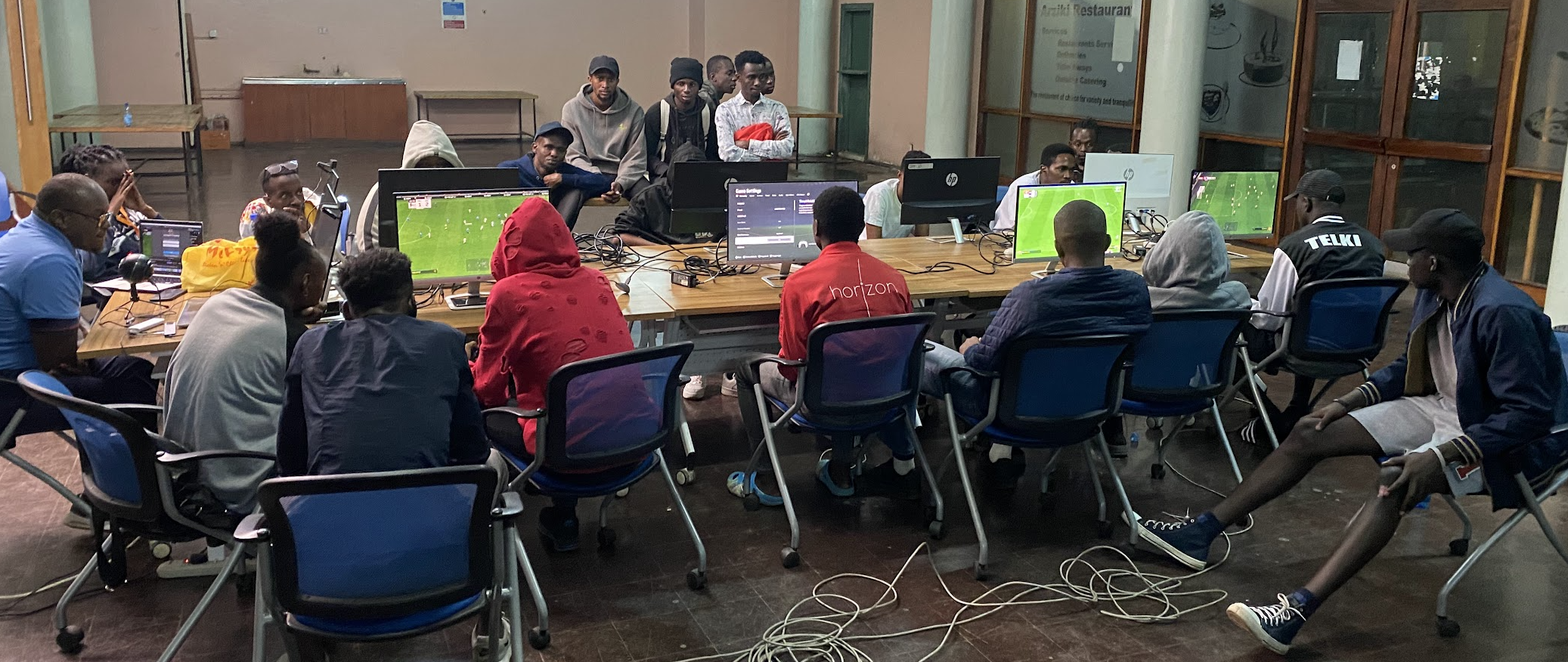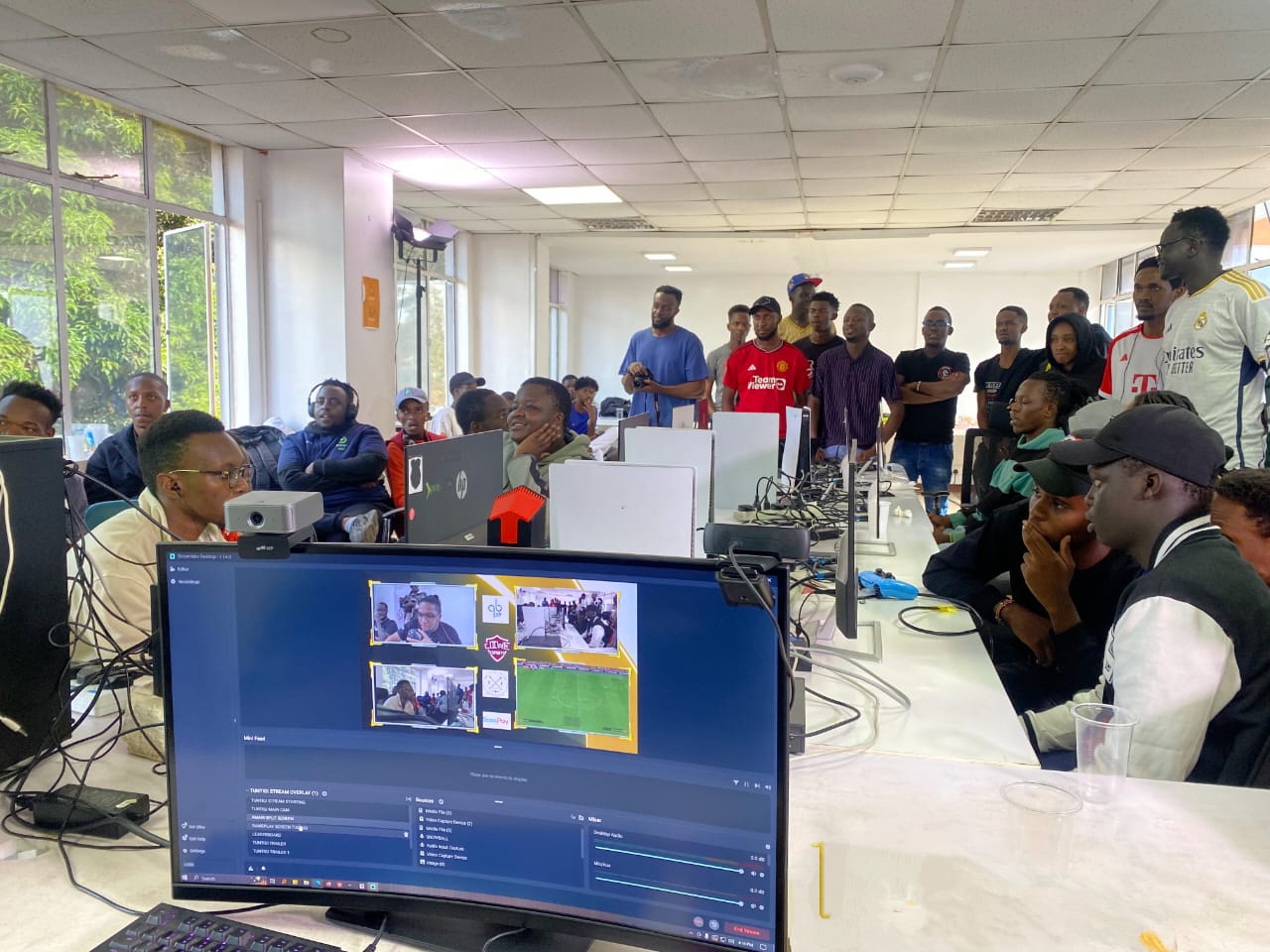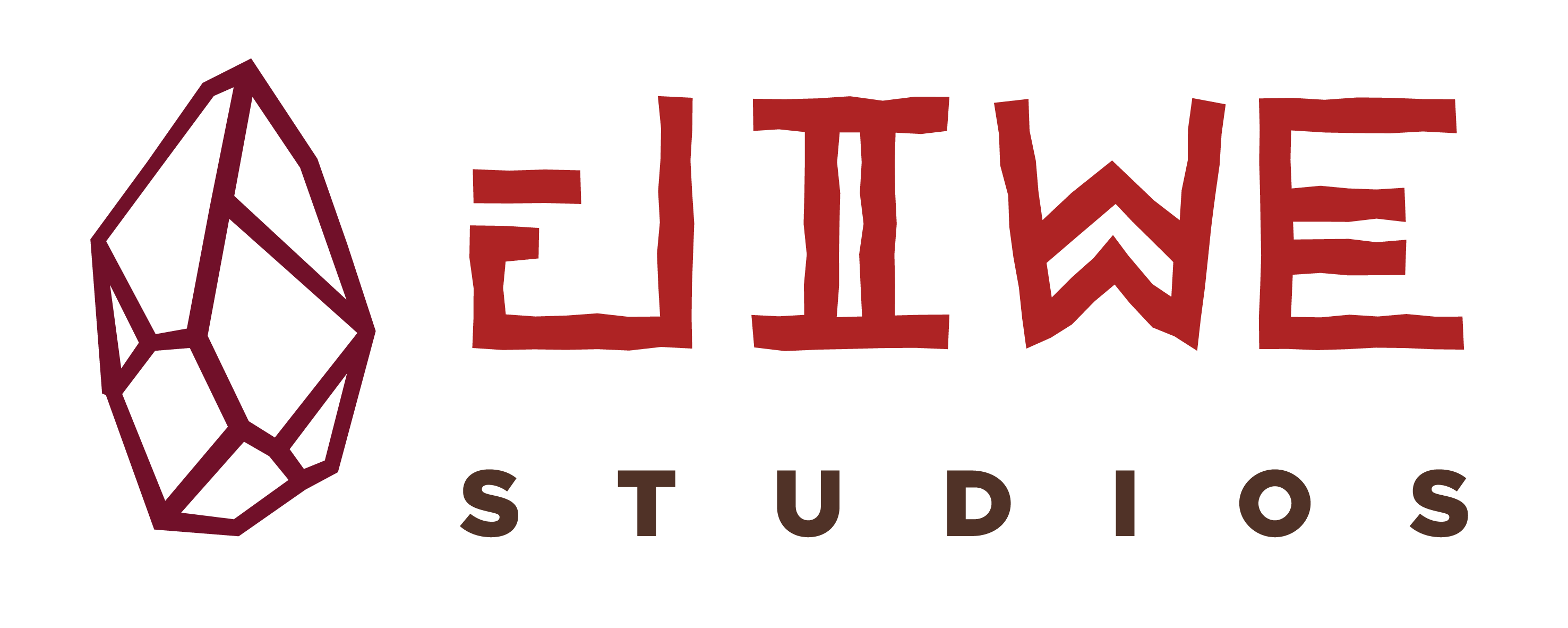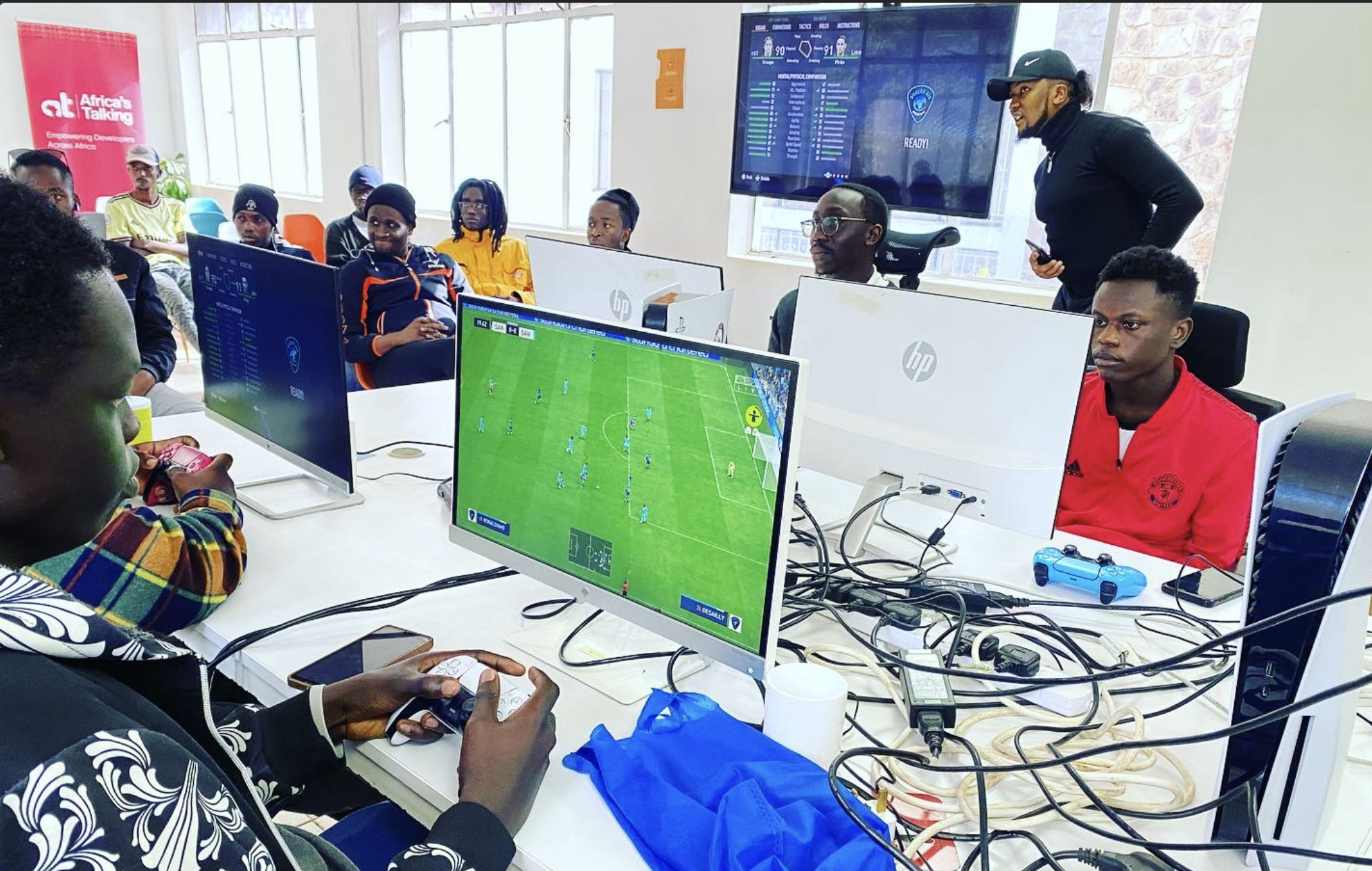From Esports Champion to Software Developer
The Overlapping Worlds of Competitive Gaming and Software Development
In Kenya’s fast-growing esports scene, where competition is fierce and talent is rising, one of the country’s top FIFA players is making a bold move from dominating virtual pitches in FC25 to creating the next generation of digital experiences. His transition from esports to software development is more than a career shift; it’s proof of the deep connection between gaming and software development, and an opportunity for young people to see new pathways in tech.
For over four years, Makuer Matur Makuer has been one of the best in the game, competing at the highest levels in FIFA. But as time went on, his focus began to shift.
“I became more interested in the mechanics behind the games—how they’re developed, how things are brought to life. When you play a game for so long and become really good at it, you naturally start wanting to understand it on a deeper level.”

The Skill Transfer: From Competitive Gaming to Software Development
High-level esports competition is not just about reflexes and reaction time it’s about mental agility, quick decision-making, and strategic planning. These same traits are essential in software development, where problem-solving under pressure is an everyday requirement.
“Esports teams in Kenya have grown, and that has increased teamwork and collaboration, something I’m very familiar with. In FIFA, we play 12-minute matches, which isn’t a lot of time to think, so I’ve had to train myself to make quick, calculated decisions. Playing at this level means any mistake is punished instantly, and that’s made me extremely detail-oriented. That kind of precision translates well into coding and software development.”
Esports as a Gateway to Tech Careers
For many young people, esports isn’t just a pastime—it’s a potential career path. But beyond competition, gaming sharpens the mind, builds discipline, and fosters the kind of strategic thinking that’s crucial in tech.
“Playing at a high level is mentally demanding. A lapse in concentration can cost you the match, so you learn to stay focused and alert. That kind of mental training makes you a better problem solver, which is a key skill in software development.”
Turning Esports Fame into Revenue
One of the biggest challenges for young game developers is finding sustainable income streams. Esports is increasingly becoming a viable avenue, not just for players but for content creators, influencers, and now, even developers.
“Right now, esports players in Kenya are in a great position. The scene is getting more exposure—Jiwe’s weekly tournament streams, for example, are bringing in new players who want to test themselves against the best. This increased visibility is attracting sponsors, like Tusker with the Tusker Nexters tournament and Betika with the Esports Showdown. Players are also getting noticed and sponsored individually by brands, which wasn’t happening before. More opportunities are opening up.”
Building Bridges Between Gamers and Game Developers
One of the most overlooked opportunities in gaming is the collaboration between esports players and game developers. These two communities exist side by side, yet there’s still a gap in how they interact. That needs to change.
“Gamers can play a huge role in game development. We understand the mechanics, the balance, the feeling of competition. Developers can use esports players to test their games and give feedback on what works, what doesn’t, and what could be improved. It’s a natural partnership that could make games better while giving esports players a new avenue to contribute to the industry.”
Advice for Young Gamers Looking to Build Games
For aspiring developers coming from an esports background, platforms like Jiwe IO can play a crucial role in making the transition easier.
“Jiwe is a great platform because it supports both gaming and game development. Young players can learn from both communities and start getting involved early, whether that’s through testing, game design, or even developing their own projects.”
A Competitive Mindset in the Tech World
At the end of the day, what sets apart top esports players is the same thing that sets apart top developers—the ability to adapt, iterate, and keep improving.
“Being at a high level for so long has taught me a lot. In FIFA, when I’m trying to rank up before time runs out, I have to think fast and adapt. I can pause, change my formation, or switch strategies to get to my goal quicker. That adaptability is a huge advantage in software development, where you’re constantly learning new technologies and adjusting to challenges.”

The Future: A Blurred Line Between Gamers and Game Creators
The relationship between gamers and game developers is closer than ever, and esports is proving to be more than just a competition, it’s a talent incubator for the next generation of game creators. The more we integrate these communities, the more opportunities we create for young people to turn their passion into careers.
For Kenya’s rising gaming industry, the future isn’t just about playing the game. It’s about making it.










